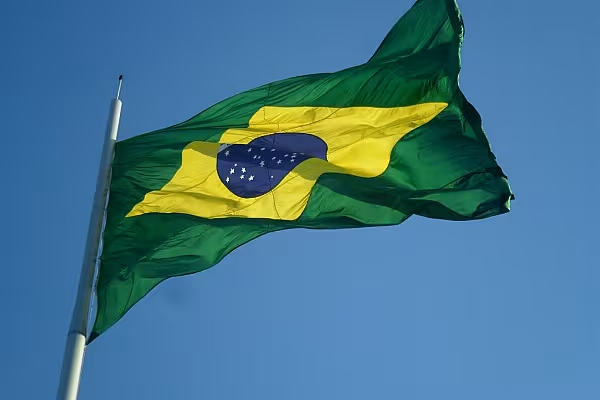Brazil is testing a variety of drought resistant, genetically modified wheat in a bid to become more self-sufficient in the staple crop as global supplies tighten.
The move is the latest sign of increasing interest worldwide in planting wheat that can withstand drought, as more extreme weather linked to climate change increases the risk of global famine.
An official at state crop research agency Embrapa told Reuters it has partnered with Argentine company Bioceres, which has developed a genetically modified wheat that can thrive in dry weather.
The other major commodity crops, soy and corn, are almost entirely cultivated with genetically modified seeds but consumers have previously opposed use of the technology in wheat as it is consumed directly by people rather than fed to livestock.
Approved For Sale
Australia and New Zealand approved the sale and use of foods that contain Bioceres's HB4 wheat last month.
Brazil's testing of the crop has not previously been reported. Bioceres declined to comment.
Embrapa received regulatory approval from Brazil's biosecurity agency CTNBio in March, when it began planting wheat on test fields near Brasilia in the Center West Cerrado region, where farmers traditionally plant soy and corn, Jorge Lemainski, head of Embrapa's research for wheat, said in an interview.
He said the agency will report on how the GMO wheat being tested grows in the Cerrado savanna region in August.
Expanding Production Area
Test planting began right after Russia's invasion of major grains exporter Ukraine that sent wheat prices to near record highs. Brazil is the top global exporter of soybeans, but is a net importer of wheat. Some 90% of the wheat Brazil grows comes from the much wetter south. Planting the crop farther north could vastly increase the amount of wheat grown in Brazil.
A recent survey showed more than 70% of consumers in Brazil would consume GMO wheat, a sign opposition to genetically altered crops is easing.
President Jair Bolsonaro's government, an ally of Brazil's powerful farm lobby, would like to reduce the country's dependence on wheat imports from neighboring Argentina and increase Brazil's wheat exports.
Any potential commercial planting of GMO wheat is some four years away, pending test planting results and regulatory approvals, Lemainski said.
"It's one thing to do research and another thing to do extensive farming," he said.
Past attempts to develop GMO wheat have been problematic. Seed company Monsanto shelved plans to develop genetically engineered wheat in the United States in 2004 due to concerns about rejection from foreign buyers and fears test plants could find their way into the food supply.
Japan stopped buying wheat from Canada in 2018 after grain containing a genetically modified trait was discovered in Alberta province.
Read More: EU Cuts 2022/23 Wheat Crop Forecast, Still Sees Record Exports
News by Reuters, edited by ESM. For more Supply Chain News, click here. Click subscribe to sign up to ESM: European Supermarket Magazine.














